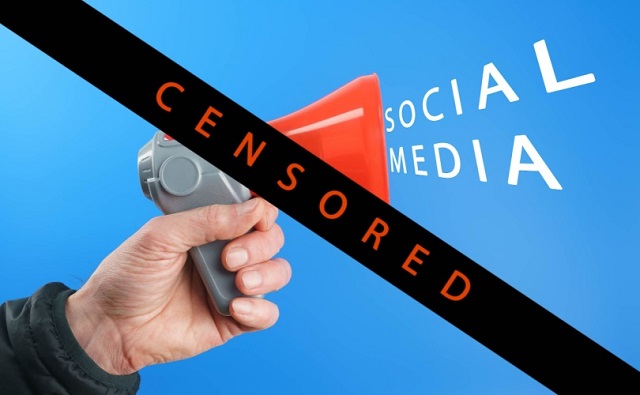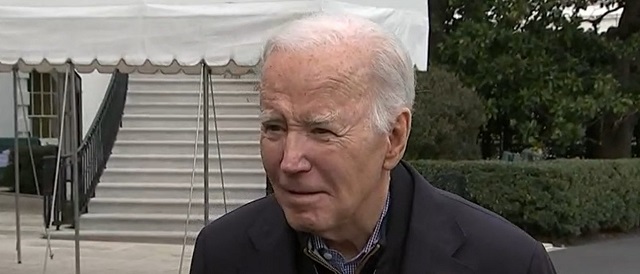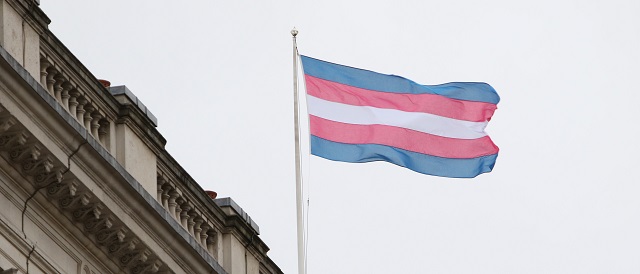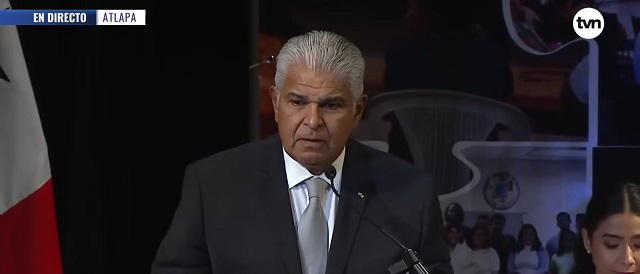Censorship Industrial Complex
Internet censorship laws lead a majority of Canadians to believe free speech is threatened: poll

From LifeSiteNews
In light of the barrage of new internet censorship laws being passed or brought forth by the federal government of Prime Minister Justin Trudeau, a new survey revealed that the majority of Canadians feel their freedom of speech is under attack.
According to results from a Leger survey conducted April 26-28 that sampled responses from 1,610 Canadians, 57 percent think their freedom of speech is being threatened, with 36 percent not believing this to be true.
Not surprisingly, those with conservative voting intentions, about 76 percent, were the most likely to feel that their free speech is under attack, with 70 percent of the same group as well as those over 55, feeling that Canada is not as free as before.
The survey results also show that 62 percent of Canadians think it is “tougher to voice their opinion in their country, while 27% think it is easier.”
“Conservative voters (70%) and Canadians aged 55 or older (70%) are more likely to think that it is tougher now to express their opinion,” Leger noted in its survey.
Not surprisingly, Liberal voters were the most supportive of placing limits on free speech, with 64 percent agreeing with the following: “There should be limits on freedom of speech to ensure that things such as hate speech, speeches preaching a form of intolerance, or speeches against democracy be prevented from reaching the public.”
The survey also revealed that about one of four conservative voters believe that their views are not socially acceptable.
Sixty percent of conservative voters said that free speech should never be limited in any manner and that one should be able to express their opinions publicly without issue.
Regarding their reasons for free speech being under attack, 11 percent blamed politicians causing more hate, with eight percent saying “right-wing” extremists were to blame, with seven percent blaming woke-minded thinking as the issue. Twenty-nine percent of Canadians felt that a growing lack of respect is to blame, and 13 percent thought it is due to “a degradation of the moral fibre in the country.”
A bit concerningly, only six of 10 Canadians have confidence that the next federal election, scheduled for 2025, will be “free and fair,” with 29 percent saying outright they are “not confident.”
When it comes to internet censorship laws, the most recent one introduced in the House of Commons is a federal government bill that could lead to large fines or jail time for vaguely defined online “hate speech” infractions under Liberal Minster Attorney General Arif Virani’s Bill C-63, or Online Harms Act.
LifeSiteNews recently reported how well-known Canadian psychologist Jordan Peterson and Queen’s University law professor Bruce Pardy blasted Trudeau and his government over Bill C-63.
Peterson noted that in his view, Bill C-63 is “designed … to produce a more general regime for online policing.”
“To me, that’s what it looks like,” he said.
Two other Trudeau bills dealing with freedom on the internet have become law, the first being Bill C-11 or the Online Streaming Act that mandates Canada’s broadcast regulator, the Canadian Radio-television and Telecommunications Commission (CRTC), oversee regulating online content on platforms such as YouTube and Netflix to ensure that such platforms are promoting content in accordance with a variety of its guidelines.
Trudeau’s other internet censorship law, the Online News Act, was passed by the Senate in June 2023.
The law mandates that Big Tech companies pay to publish Canadian content on their platforms. As a result, Meta, the parent company of Facebook and Instagram, blocked all access to news content in Canada. Google has promised to do the same rather than pay the fees laid out in the new legislation.
Critics of recent laws such as tech mogul Elon Musk have said it shows “Trudeau is trying to crush free speech in Canada.”
Censorship Industrial Complex
Australia passes digital ID bill, raising fears of government surveillance without accountability

From LifeSiteNews
By David James
Critics argue the legislation, enacted under the guise of increased security, ramps up government surveillance and control, with no accountability mechanisms for public sector misuse.
The Australian Parliament has passed the Digital ID Bill 2024 and Digital ID (Transitional and Consequential Provisions) Bill 2024 which, it claims, will provide “certainty” for the expansion of the existing Australian government digital ID system.
The move is being presented as a way to improve “privacy and security” for people when interacting online by “verifying” users’ identities. The government claims that the legislation will reduce fraud and other malpractice by private actors, but the bill says nothing about the public actors, the government. The implication is that that the public sector will never do anything wrong with its increased powers, raising the suspicion that it is yet another move by state and federal governments to increase surveillance and control over the lives of citizens.
Australia is a paternalistic society and there is no mechanism to hold the executive branch of government accountable – indeed the possibility is rarely raised. There is thus nothing to stop more intrusions into people’s privacy by the government.
Commenting on the passing of the bill, Queensland Senator Malcolm Roberts from the One Nation Party said that, while the voluntary system has been presented as a measure for security and convenience it could lead to significant privacy breaches, cyber-attacks, and government overreach. He described it as a potential attack on Australians’ “freedom, privacy, and way of life,” especially if it eventually becomes mandatory.
Roberts pointed to the Digital ID bill, the Online Safety Act, the Identity Services Verification Act, and the Misinformation and Disinformation Bill as elements of what looks like a coordinated plan by the federal government “to identify, punish and imprison anyone who resists this slide back into serfdom.” In the initial inquiry into the Digital ID bill, he said, the Human Rights Commission “drew attention to the lack of protection of privacy and human rights in the bill,” but it was ignored. Roberts added that the bill is very similar to legislation being implemented in other Western nations.
A significant proportion of the Australian population has concluded that politicians and the public sector cannot be trusted and that they fail to scrutinize their own actions. As if to underline this unaccountability, the Digital ID bill was passed using “tricks used to stifle debate and public discussion,” according to former federal senator Craig Kelly. He said on X (formerly Twitter) that the way the bill was passed was “contrary to precedent, the spirit of the Constitution and [the] Westminster tradition.”
“Labor introduced the Digital ID in the Senate (the House of review) instead of the House of Representatives,” Kelly wrote. “Then they guillotined debate in the Senate. And in House of Representatives, Labor shifted debate to the Federation Chamber where the Liberals put up token resistance with only one Liberal MP and two National MP’s bothering to speak on the Bill – and they didn’t even try any amendments to protect privacy or to try and safeguard against it being made compulsory.”
🔥🔥🔥BREAKING 😥😥😥
At 4.50pm this afternoon, and with only token opposition from the Liberals & Nationals the Digital ID Bill was passed by the Parliament.
A sad day for Australia, as the nation marches further down the road towards a totalitarian society.
And never… pic.twitter.com/GjVtIxwK0t
— Craig Kelly (@CraigKellyPHON) May 16, 2024
The aggressive government actions during the COVID crisis have shown just how abusive Australian politicians and the public sector can be, and how few ways there are for citizens to protect themselves. The restrictions on free speech, free movement, and freedom of thought were extreme.
The government mendacity continues – at a time when federal laws against “disinformation and misinformation” are being debated. There is constant propaganda in government-funded media outlets about what an effective job was done against the “pandemic” by pursuing lockdowns and mass vaccination. It is false; there was no pandemic. The Australian Bureau of Statistics found that 2020 and 2021 had the lowest number of deaths from respiratory diseases since records have been kept.
The federal government, in a statement, is giving the impression that the move is merely a way to protect vulnerable Australians, to give certainty for providers and services, and to provide transparency in order “to build public trust.” But what is not said is more important than what is said. There is no mechanism for Australians to redress wrongs committed by the government.
What should happen is something that has never existed in Australia: the establishment of a way for Australians to hold the public sector accountable and stop their governments becoming a menace, as occurred during the “pandemic.” Unless public servants are at risk of being penalized, or at least of having their actions constrained, there is a strong likelihood that fears about the Digital ID Bill will ultimately be realized.
Censorship Industrial Complex
Jim Jordan Exposes Biden’s Censorship-Industrial Complex

 From the Daily Caller News Foundation
From the Daily Caller News Foundation
By TOM HEBERT
“Internal talking points prepared by Amazon,” says the report, “included the question: ‘Is the [Biden] Admin asking us to remove books, or are they more concerned about search results/order (or both).’”
High-ranking Biden White House operatives coerced Big Tech companies into censoring posts critical of the Biden administration or those that spread so-called “misinformation” about COVID-19. A blockbuster new report from the House Judiciary Committee, which is chaired by Rep. Jim Jordan, exposes how the Biden administration weaponized Big Tech against conservatives.
“The report,” the committee said when it released it, “details the months-long campaign by the Biden White House to coerce large companies, namely Facebook, Google, and Amazon, to censor books, videos, posts, and other content online. By the end of 2021, Facebook, YouTube, and Amazon changed their content moderation policies in ways that were directly responsive to criticism from the Biden Administration.”
This report is the result of a multi-year investigation by the Judiciary Committee’s Select Subcommittee on the Weaponization of the Federal Government. The evidence, including tens of thousands of emails and other non-public documents, shows a disturbing pattern of Biden officials pressuring Big Tech companies into censoring Americans online.
Shortly after Biden’s inauguration in 2021, then-White House Digital Director Rob Flaherty began haranguing top Facebook officials for more detail on their policies for taking down COVID-19 related posts. “In February 2021,” says the report, “Facebook increased its censorship of anti-vaccine content as well as the lab leak theory of the origin of the virus because of ‘tense conversations with the new [Biden] Administration’ and as part of an effort to be responsive to the Biden White House’s exhortations to ‘do more’ to combat alleged misinformation.”
As 2021 progressed, the White House demanded to know what Facebook was doing to censor “borderline content,” posts that did not violate Facebook’s content moderation policies but were nevertheless objectionable to Biden officials. “Facebook would meet again with the Biden White House on March 12, 2021, to discuss how it was approaching ‘borderline content,’ that is, content that did not violate its policies,” says the report.
“Facebook walked through its policies and enforcement practices for violative and borderline content,” it says. “But call notes reveal that throughout the meeting, Flaherty continued to ask about the removal and reduction of content above all else.”
Unsatisfied with Facebook’s unwillingness to “play ball,” Flaherty and the White House played hard ball. On July 16, 2021, a reporter asked Biden: “On Covid misinformation, what’s your message to platforms like Facebook?” Biden responded: “They’re killing people.”
In response to the intense pressure from the White House, Facebook went on to change their content moderation policies and censored posts about vaccine hesitancy and the lab-leak theory.
Facebook was not the only social media platform that Biden officials pressured. In April 2021, Flaherty reached out to YouTube with a litany of questions about YouTube’s efforts to censor borderline content. “Flaherty’s email was particularly focused on how YouTube handled non-violative ‘borderline’ content,” says the report. “These requests were prefaced by stating the Biden White House wanted ‘to be sure that you have a handle on vaccine hesitancy generally and are working toward making the problem better’ and that this ‘is a concern that is shared at the highest (and I mean highest) level of the [White House].’”
After Flaherty succeeded in making YouTube change its content moderation policies “to remove content that questioned the safety or efficacy of COVID-19 vaccines,” other Biden bureaucrats started to pester YouTube employees to clamp down on other content. In March 2022, according to the committee report, former Biden advisor Tim Wu asked for a meeting with Google employees to discuss “Russian misinformation/disinformation” and “airline competition.”
Another staffer communicated with YouTube about abortion-related content. “On July 14, 2022, YouTube Government Affairs staff contacted White House personnel to brief them on ‘updates related to addressing reproductive health misinformation on YouTube,’ to which White House staff responded, saying that they were ‘specifically interested in abortion,’” said the report.
Biden officials clearly sought to censor content they perceived as politically damaging to Biden.
The report also shows the White House’s obsession suppressing books that they disagreed with. In March 2021, the Biden White House emailed an Amazon executive “asking to have a discussion regarding the ‘high levels of propaganda and misinformation and disinformation at Amazon.’”
“Internal talking points prepared by Amazon,” says the report, “included the question: ‘Is the [Biden] Admin asking us to remove books, or are they more concerned about search results/order (or both).’”
There are two important takeaways from this report.
One, the Biden administration sought to impose a censorship regime through Big Tech to benefit the president politically.
Two, Congress should act to prevent future government-directed censorship of American speech. There are numerous bills that would address this problem. The House passed the “Protecting Speech from Government Interference Act” last year, legislation that would ban bureaucrats from advocating for censorship of viewpoints. The “Free Speech Protection Act” imposes penalties on bureaucrats who censor speech, and the “Censorship Accountability Act” would allow Americans to sue bureaucrats who violate their First Amendment rights.
The Biden administration has displayed an appalling amount of contempt for American free speech. Exposing Biden’s censorship-industrial complex is an important first step toward ensuring that unelected bureaucrats do not have a veto over what we say online.
Tom Hebert is Director of Competition and Regulatory Policy at Americans for Tax Reform and executive director of the Open Competition Center.
-

 COVID-192 days ago
COVID-192 days agoJapan’s most senior cancer doctor: COVID shots are ‘essentially murder’
-

 Brownstone Institute1 day ago
Brownstone Institute1 day agoThe WHO’s Proposed Pandemic Agreements Worsen Public Health
-

 John Stossel2 days ago
John Stossel2 days agoProtecting Free Speech: The Early Warning Signs From Around The World
-

 COVID-192 days ago
COVID-192 days agoTrudeau’s public health agency recommends another experimental COVID booster
-

 armed forces1 day ago
armed forces1 day agoTrudeau government has spent $10 million promoting DEI in the military as recruitment flounders
-

 Health2 days ago
Health2 days agoTHE WPATH TAPES: Behind-The-Scenes Recordings Reveal What Top Gender Doctors Really Think About Sex Change Procedures
-

 COVID-191 day ago
COVID-191 day agoThe New York Times Admits Injuries from COVID-19 Shots
-

 illegal immigration2 days ago
illegal immigration2 days agoPanama’s Incoming President Wants To Shut Down His Country’s Most Treacherous Route For Migrants — But Will It Work?



